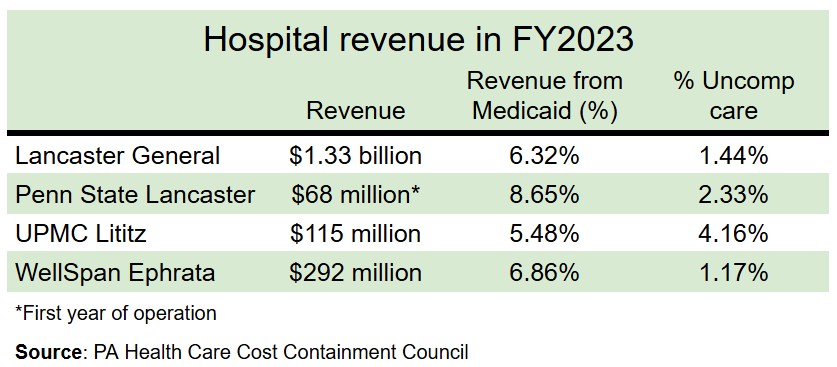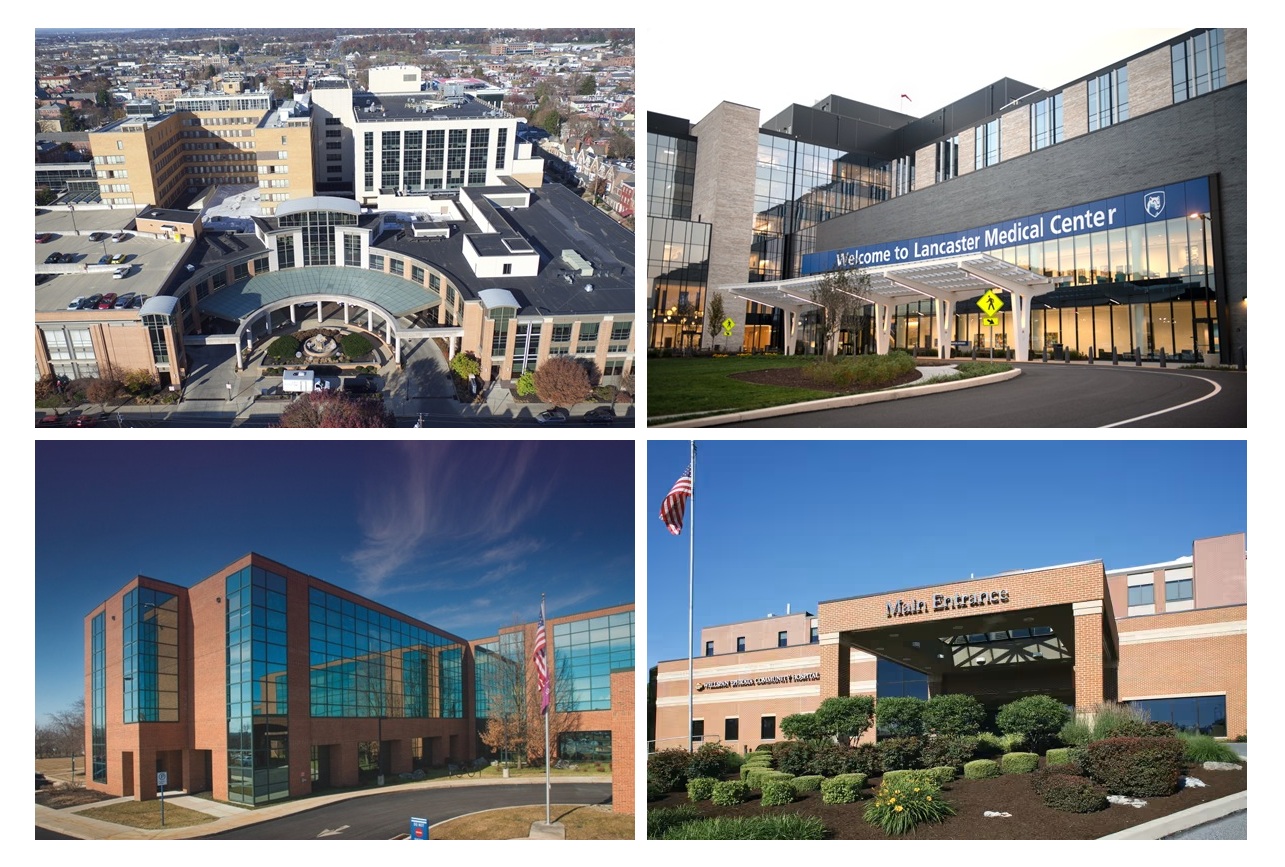Economic Impact: Healthcare Access and Cost
By Tim Stuhldreher for the Lancaster County Community Foundation
The Medicaid cuts in the “One Big Beautiful Bill” passed by the U.S. House could have an outsized impact not only on community health, but on the healthcare economy.
The bill would cut spending significantly over 10 years: Estimates range from at least $600 billion to well over $800 billion. It would impose new work requirements and documentation that states say will be costly to administer. The Congressional Budget Office estimates that 10.9 million people will lose insurance.

Hospital Revenue
In Lancaster County, according to state data, 18% of the population is enrolled in Medicaid — 101,010 people out of 553,202. The program is especially important for children’s health: It covers 30% of the under-21 population, 44,809 out of 15,552.
Lancaster County has four acute-care hospitals: Lancaster General Hospital, Penn State Health Lancaster Medical Center, UPMC Lititz and WellSpan Ephrata. The share of their budgets that come from Medicaid range from 5.48% to 8.65%.
The administration and Congressional Republicans say the changes to Medicaid target waste, fraud and abuse. State officials, health professionals and industry analysts say the effect will be to throw thousands of eligible people off their insurance and worsen state and hospital finances.
More than 300,000 Pennsylvanians could lose coverage, Gov. Josh Shapiro said on social media, adding: “This will raise health care costs for all Pennsylvanians – including those with private insurance.”
Pennsylvania’s rural hospitals are especially dependent on Medicaid reimbursements. Many are struggling, and the bill could lead to their closure, the governor said.

Clockwise from top left: Lancaster General Hospital, Penn State Health Lancaster Medical Center, WellSpan Ephrata Community Hospital, UPMC Lititz.
In a letter to Pennsylvania’s Congressional delegation, sent before the May 22 House vote on the One Big Beautiful Bill, the Hospital & Healthsystem Association of Pennsylvania urged representatives to oppose it. It ignores the reality of health care costs and “will have a dramatic impact on access to care,” HAP said.
“Disruptions to critical funding not only jeopardize access to essential services like emergency, maternal and behavioral health services that communities rely on but could also devastate local economies,” it said.
